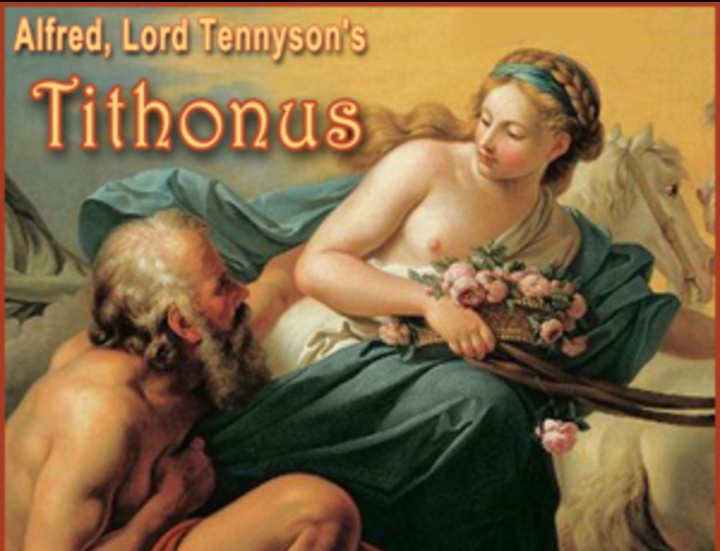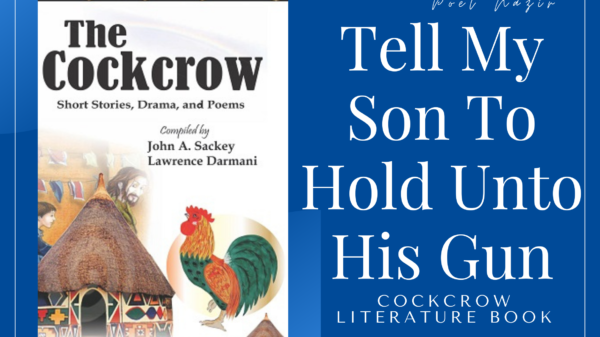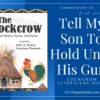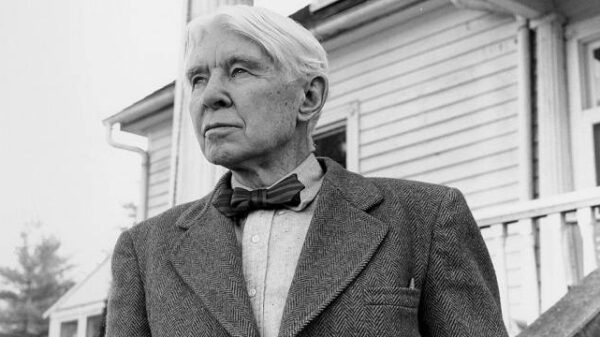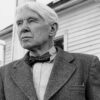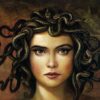In this poem, Tithonus addresses his lover, Aurora (Eos in Greek myth; Aurora in the Roman version), but also tells us the ‘back story’, outlined above. Now, having been ‘maim’d’ and aged beyond recognition by his longevity, Tithonus yearns to be released from his endless life and find peace in death.
Read Also: The Lady of Shalott (1842) Written By Alfred, Lord Tennyson
Nevertheless Aurora, weeping, has told him that ‘The Gods themselves cannot recall their gifts.’ Even the gods, it would seem, cannot undo Tithonus’ immortal ‘gift’ – even though it has now become more of a curse. All Tithonus can do is lie coldly in the warm arms of Aurora and long for a death that he can never know. (Aurora is described as being on ‘silver wheels’ because she was the goddess of the dawn, and was ‘personified’ as the sun rising in the sky.)
This is the story that inspired Alfred, Lord Tennyson’s poem, but does it possess any other meanings? Can a biographical analysis of ‘Tithonus’ help to elucidate the poem?
Read Also: Break, Break, Break a Poem By Alfred, Lord Tennyson
Analysis On ‘Tithonus’ Poem
Well, Tennyson wrote ‘Tithonus’ in 1833, shortly after the death of his friend Arthur Hallam, who also inspired a number of Tennyson’s other poems, most famously his long elegy In Memoriam (1850). But although Tennyson wrote the poem in 1833, he didn’t publish it until 27 years later, when it appeared in the Cornhill Magazine.
Tennyson may have been prompted to dust off this poem, begun more than a quarter of a century ago, by a letter he received from Benjamin Jowett in 1859. Having recently visited Hallam’s grave, Jowett remarked, ‘It is a strange feeling about those who are taken young that while we are getting old and dusty they are just as they were.’
This remark, in essence, is the core of ‘Tithonus’. And whilst it would be a reductive analysis that sought to declare Tennyson = Tithonus and the forever young Arthur Hallam = Aurora (because, having died young, he will be preserved in his prime forever and never grow old), this biographical fact seems to power Tennyson’s poem about death, ageing, and immortality.
Read Also: Color a Poem By Christiana Rossetti
This biographical background helps us to pinpoint precisely what makes Tithonus unusual among Tennyson’s poetry: rather than being a celebration of life, it is a poem about a longing for death. Rather than revelling in the idea of immortality (whether of an imagined literal kind or the sort of afterlife that poetry can give an individual, as expressed famously in Shakespeare’s Sonnet 18), it is a poem that turns away from immortality in disgust.
In doing so, Tennyson prefigures such twentieth-century explorations of death-in-life as T. S. Eliot’s The Waste Land, which has an epigraph (from the Roman writer Petronius) that tells a very similar story to that of Tithonus (namely the Cumaean Sibyl, who also asked for eternal life but forgot to ask for eternal youth).
Tennyson’s poem continues to be relevant and is likely to remain so, especially in an age where human beings are living longer and longer lives, even though we are often transformed almost beyond recognition (or literally beyond our own recognition, in the tragic case of Alzheimer’s disease or senile dementia) and end up living yet not living, the older we become.
Read Also: Song of the Witches: “Double, Double toil And Trouble” By William Shakespeare
There is a heartbreaking aside in Tithonus which captures such horrific transformation. Tithonus, talking about himself, says, ‘if I be he that watch’d’. Is he the man he once was? ‘Tithonus’ addresses this almost-taboo issue: is it always better to choose life? Or is there something to be said for ‘the human practice of dying’?
Cc: Deserved
Poet Nazir is a writer and an editor here on ThePoetsHub. Outside this space, he works as a poet, screenwriter, author, relationship adviser and a reader. He is also the founder & lead director of PNSP Studios, a film production firm.

